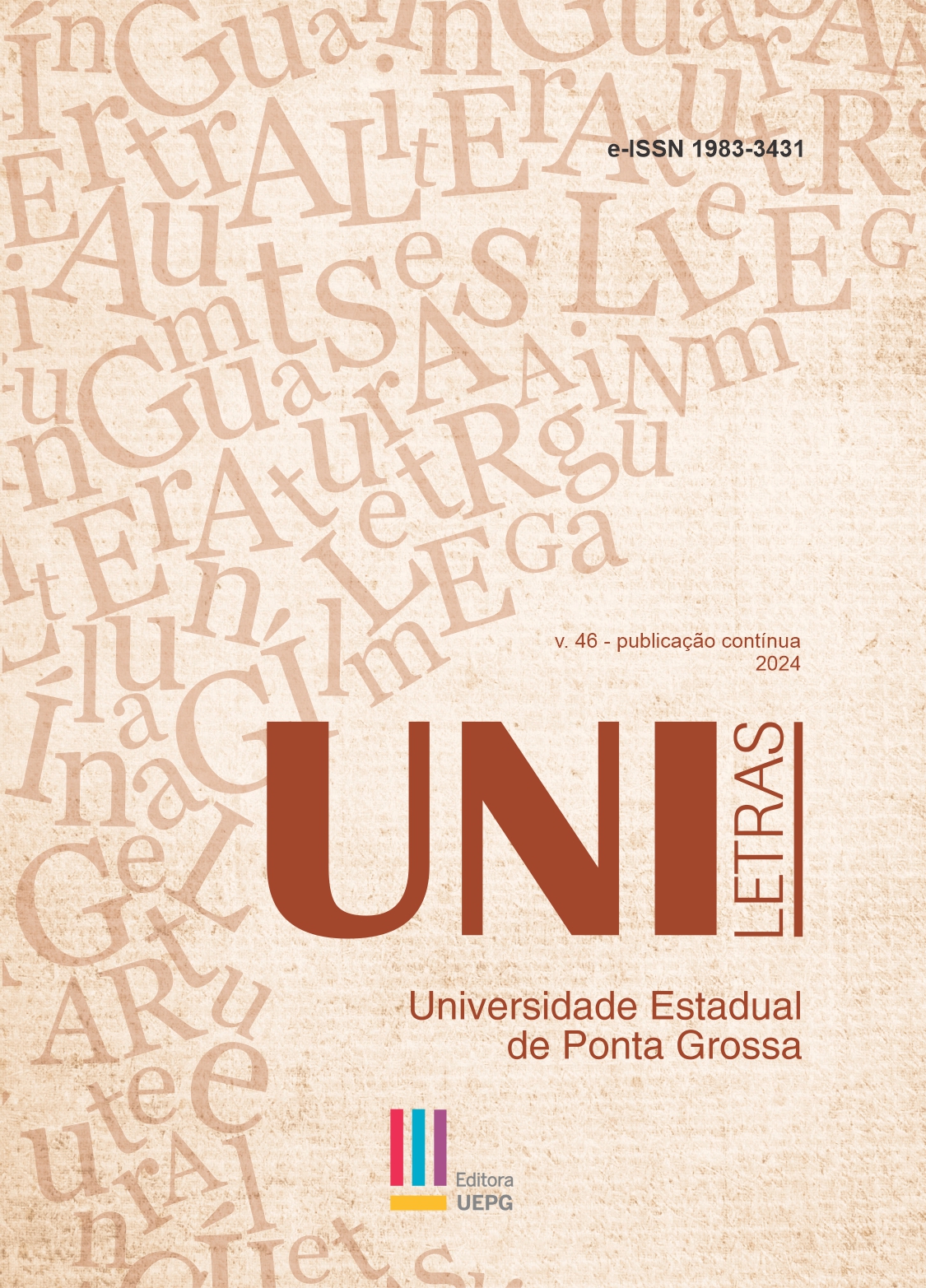LINGUISTIC SIGN: ARBITRARY OR CONVENTIONAL?
Abstract
This article aims to analyze the contributions of the linguist Ferdinand de Saussure, especially those present in his Course in General Linguistics (CGL), and the notes of De Mauro, among other authors, for the understanding of the paradox of arbitrariness and conventionality of the linguistic sign. The work is based on theoretical references that include Saussure’s reflections on the linguistic system, the definition of language, and the conceptualization of the linguistic sign as a psychical entity with two faces. In addition, it explores philosophical debates about the relationship between names and objects and the opposition between the arbitrariness and motivation of linguistic signs, present not only in Saussure’s writings but also in ancient dialogues, such as in Plato’s Cratylus. The results highlight the importance of Saussure’s ideas in shaping modern linguistics and the ongoing relevance of his legacy for contemporary linguistic theories.
Downloads
Downloads
Published
Issue
Section
License
Authors that publish in the journal agree with the following terms:
a) The authors keep the copyright and grant to the journal the rights of the first publication, with the work simultaneously being licensed under the Creative Commons Attribution License that allows the sharing of the work with the recognition both of the authorship and the initial publication in this journal.
b) This journal provides immediate public access to all of its content, following the principle that making scientific knowledge freely available to the public provides greater worldwide democratization of knowledge. For more information about this approach, visit Public Knowledge Project, a Project that developed this system to improve the academic and public quality of research, distributing OJS as well as other softwares to support the publication system to public/open access to academic sources. Names and e-mail addresses in this website will be used exclusively for this journal purposes, not being available for other ends.

This work is licensed under a Creative Commons Attribution 4.0 International License.





